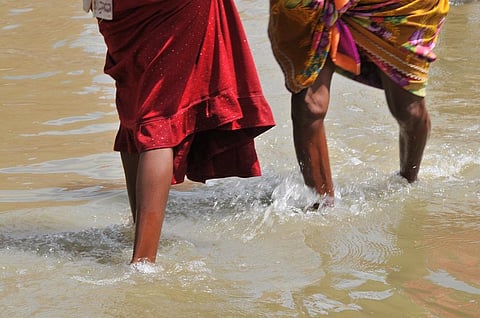

The rate at which climate change is having an impact of global weather events is alarming, reveals a study conducted by European Academies Science Advisory Council (EASAC). “Extreme weather events have become more frequent over the past 36 years, with a significant uptick in floods and other hydrological events compared even with five years ago,” says the study titled ‘Extreme weather events in Europe: Preparing for climate change adaptation: an update on EASAC’s 2013 study’.
The number of floods and other hydrological events have quadrupled since 1980 and doubled since 2004, says the study. “Climatological events, such as extreme temperatures, droughts, and forest fires, have more than doubled since 1980. Meteorological events, such as storms, have doubled since 1980,” reveals the study.
Since climate proofing can limit these impacts, the EASAC, an entity made up of 27 national science academies in the European Union, Norway, and Switzerland, has urged leaders and policy makers to improve adaptability of infrastructure and social systems to a changing climate.
While man-made climate change has proven to have increased extreme rainfall and associated floods and coastal flooding due to sea-level rise, it has also triggered cases of heat waves in Australia, China, and Europe and increased risks of wildfires with implications for humans and animals, the environment, and the economy, the study argues.
Highlighting the economic cost of extreme weather events, the report states that economic losses due to thunderstorms in North America have doubled from under US$10 billion in 1980 to almost $20 billion in 2015.
Under such a scenario, the study says that climate-change adaptation has to become a continuous process that relies on continued monitoring of the state of the climate and the environment.